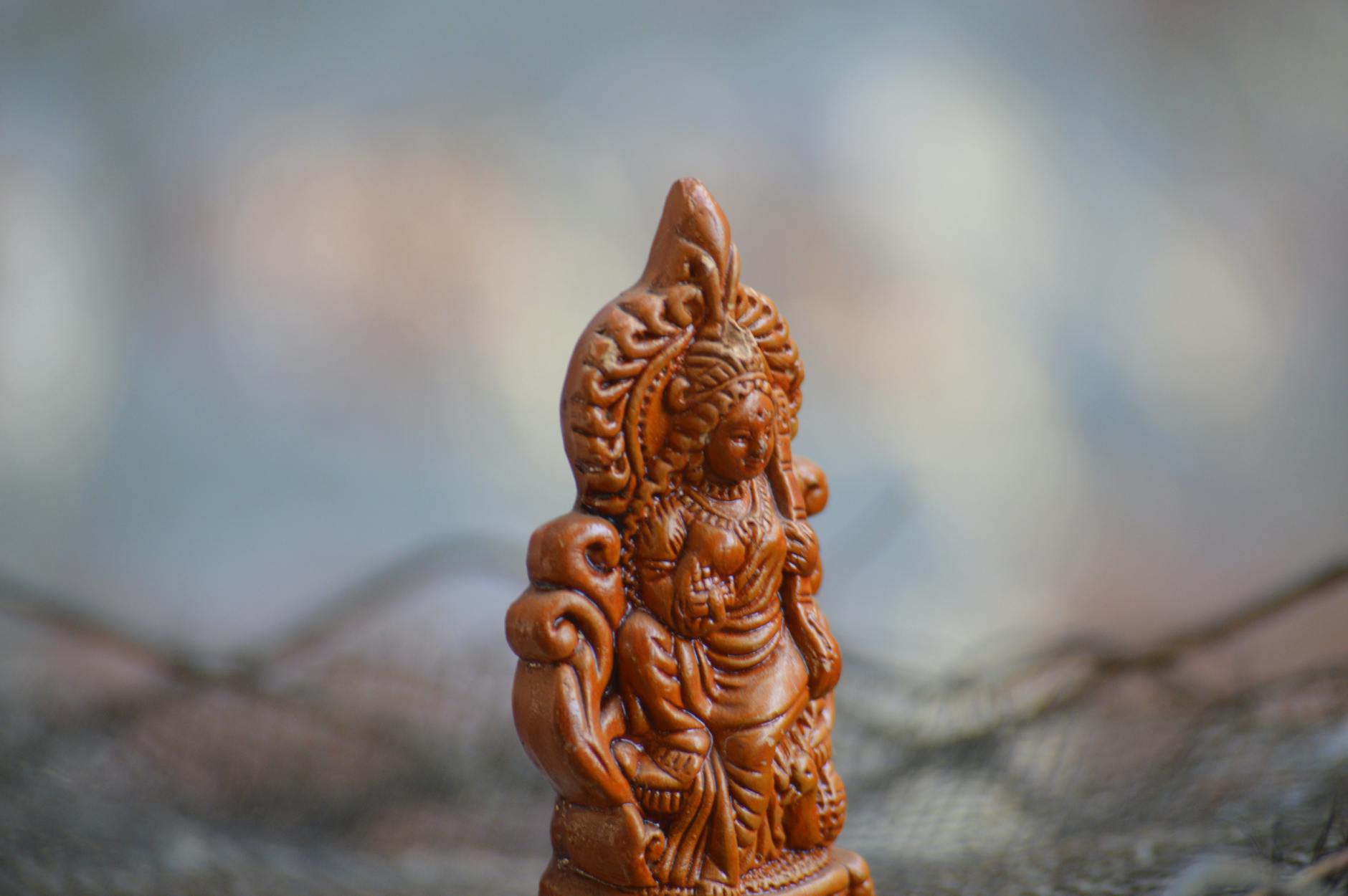
Introduction
In the vast tapestry of Hindu mythology, Goddess Lakshmi shines as a beacon of prosperity, wealth, and divine grace. Revered across cultures and religions, she embodies the epitome of fortune and spiritual enlightenment. This article delves deep into her origins, significance, rituals, and enduring influence on contemporary life.
Origins and Mythology of Goddess Lakshmi
Historical Background
The origins of Goddess Lakshmi trace back to ancient Hindu scriptures, where she is celebrated as the deity of wealth and prosperity. She is believed to have emerged from the cosmic ocean during the churning of the ocean (Samudra Manthan), a pivotal event in Hindu mythology.
Vedic References
The Vedas, among the oldest sacred texts, extol her virtues, describing her as the embodiment of beauty, wealth, and purity. These references underscore her paramount importance in the pantheon of Hindu deities.
Significance of Goddess Lakshmi in Hinduism
Role in Hindu Scriptures
Goddess Lakshmi is a central figure in many Hindu scriptures, including the Puranas and the Mahabharata. She is often depicted as the consort of Lord Vishnu, playing a crucial role in maintaining cosmic order.
Depictions in Art and Culture
Her depictions in art are ubiquitous, ranging from intricate temple carvings to vibrant paintings. Each portrayal encapsulates her attributes—lotus flowers symbolizing purity, gold coins signifying abundance, and elephants denoting royal power.
Names and Epithets of Goddess Lakshmi
Different Names
Goddess Lakshmi is known by various names across different regions, each reflecting her diverse attributes. Some popular names include Padma (lotus), Shri (prosperity), and Kamala (wealth).
Symbolic Meanings
Each name carries a symbolic meaning that highlights a unique aspect of her divine persona. For instance, Padma signifies purity and beauty, while Shri denotes auspiciousness and prosperity.
Iconography and Symbols Associated with Goddess Lakshmi
Common Representations
Common representations of Goddess Lakshmi depict her seated or standing on a lotus flower, with four arms holding symbolic items like lotus flowers, gold coins, and an elephant’s trunk.
Symbolic Items
The items she holds are rich in symbolism. Lotus flowers represent spiritual enlightenment and purity. Gold coins signify material wealth, while elephants symbolize power and strength.
Goddess Lakshmi and Festivals
Diwali and Lakshmi Puja
Diwali, the festival of lights, is one of the most significant festivals dedicated to Goddess Lakshmi. During this time, devotees perform elaborate rituals to invoke her blessings for prosperity and well-being.
Other Celebrations
Other festivals like Kojagiri Purnima and Varalakshmi Vratam also celebrate her divine presence. Each festival has its unique rituals and customs, all aimed at seeking her benevolent blessings.
Stories and Legends of Goddess Lakshmi
Samudra Manthan
One of the most famous legends associated with Goddess Lakshmi is the Samudra Manthan or the churning of the ocean. According to this legend, she emerged from the cosmic ocean with other divine treasures.
Lakshmi’s Marriage to Vishnu
Another popular story is her marriage to Lord Vishnu. Their union symbolizes the perfect balance of material wealth and spiritual wisdom.
Role of Goddess Lakshmi in Daily Life
Household Worship
In many households, daily rituals are dedicated to worshipping Goddess Lakshmi. These rituals often include offering flowers, lighting lamps, and chanting mantras to invoke her blessings.
Business and Prosperity
She is also revered as the patron deity of businesses. Many entrepreneurs seek her blessings for success and prosperity in their ventures.
Goddess Lakshmi in Modern Times
Contemporary Relevance
In modern times, the relevance of Goddess Lakshmi extends beyond traditional worship. She symbolizes financial stability, career success, and overall well-being.
Global Influence
Her influence is not confined to India alone; she is revered globally. Many international communities celebrate Diwali and other festivals dedicated to her.
Goddess Lakshmi in Popular Culture
Movies and Television
Goddess Lakshmi has made her mark in popular culture as well. She has been depicted in numerous movies and television series, bringing her stories to a broader audience.
Literature and Music
Her influence extends to literature and music too. Many songs, poems, and literary works are dedicated to celebrating her divine attributes.
Rituals and Practices Dedicated to Goddess Lakshmi
Daily Rituals
Daily rituals dedicated to Goddess Lakshmi often include offering flowers, lighting lamps, and reciting specific prayers or mantras.
Special Ceremonies
Special ceremonies like Lakshmi Puja involve more elaborate rituals. These ceremonies are usually performed during significant festivals like Diwali.
Temples Dedicated to Goddess Lakshmi
Famous Temples in India
India is home to numerous temples dedicated to Goddess Lakshmi. Some famous ones include the Mahalakshmi Temple in Mumbai and the Ashtalakshmi Temple in Chennai.
International Temples
There are also international temples dedicated to her, such as those in Nepal, Sri Lanka, and even parts of Europe and North America.
Goddess Lakshmi in Other Religions and Cultures
Influence in Buddhism
In Buddhism, she is revered as Vasudhara, the goddess of abundance. Her attributes are similar, emphasizing wealth, prosperity, and compassion.
Influence in Jainism
In Jainism too, she holds a significant place. She is often invoked for blessings related to wealth and prosperity.
Prayers and Mantras for Goddess Lakshmi
Popular Prayers
Some popular prayers dedicated to her include the Sri Sukta and Kanakadhara Stotra. These prayers are believed to invoke her blessings effectively.
Chanting Practices
Chanting mantras like “Om Shreem Mahalakshmiyei Namaha” is a common practice among devotees seeking her blessings for prosperity.
Philosophical Interpretations of Goddess Lakshmi
Symbolism in Philosophy
Philosophically, she represents the material aspect of existence that complements spiritual growth. Her symbolism encourages a balanced approach to life.
Spiritual Teachings
Her teachings emphasize that true wealth is not just material but also spiritual. She encourages devotees to seek both kinds of wealth for a fulfilling life.
Goddess Lakshmi and Wealth Management
Traditional Beliefs
Traditional beliefs often associate her with good fortune in financial matters. Many people seek her blessings before making significant financial decisions.
Modern Perspectives
In modern times, she symbolizes financial planning and stability. Her teachings encourage prudent financial management along with spiritual growth.
Women and Goddess Lakshmi
Feminine Empowerment
Goddess Lakshmi serves as a symbol of feminine empowerment. She embodies qualities like strength, grace, and wisdom that inspire women across generations.
Role Models
She serves as a role model for women striving for balance between professional success and personal well-being.
Goddess Lakshmi and Environmentalism
Symbolism of Nature
Goddess Lakshmi’s association with lotus flowers symbolizes purity and nature. This symbolism encourages environmental awareness among her devotees.
Eco-friendly Practices
Many rituals dedicated to her now emphasize eco-friendly practices. These practices align with her teachings on purity and sustainability.
FAQs About Goddess Lakshmi
What are some common symbols associated with Goddess Lakshmi?
Goddess Lakshmi is commonly associated with symbols like lotus flowers, gold coins, elephants, and water pots. Each symbol carries deep spiritual meanings related to wealth, purity, power, and abundance.
Why is Diwali significant for worshipping Goddess Lakshmi?
Diwali is significant for worshipping Goddess Lakshmi because it marks her arrival into homes. The festival involves lighting lamps to invite her presence for prosperity and well-being throughout the year.
How can one seek blessings from Goddess Lakshmi?
One can seek blessings from Goddess Lakshmi through daily prayers, chanting mantras like “Om Shreem Mahalakshmiyei Namaha,” performing rituals during festivals like Diwali, and maintaining a clean environment at home.
What is the significance of the lotus flower in depictions of Goddess Lakshmi?
The lotus flower symbolizes purity, beauty, spiritual enlightenment, and detachment from materialism. It signifies that true wealth lies in spiritual growth along with material prosperity.
Are there any specific mantras dedicated to Goddess Lakshmi?
Yes, specific mantras like the Sri Sukta and Kanakadhara Stotra are dedicated to invoking the blessings of Goddess Lakshmi for prosperity, wealth, health, and overall well-being.
How does Goddess Lakshmi inspire modern women?
Goddess Lakshmi inspires modern women by embodying qualities like strength, wisdom, grace, and balance between professional success and personal well-being. She serves as a role model for achieving holistic success.
Conclusion
Goddess Lakshmi remains an enduring symbol of prosperity, wealth, purity, wisdom, and divine grace. Her influence permeates various aspects of life—from household rituals to global celebrations—highlighting her timeless relevance. By understanding her origins, significance, rituals, modern-day relevance, we can better appreciate the profound impact she has on our lives.


